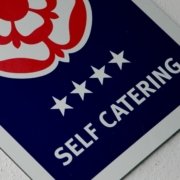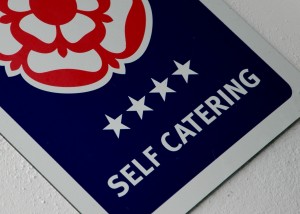 Holiday homeowners and holiday letting agents alike are understandably concerned about the potential for the disruption which coronavirus (Covid-19) may cause. Boshers have put together a list of frequently asked questions (FAQ’s). Hopefully these will help to clarify the position with respect to holiday let bookings and coronavirus. This includes details on cover provided by our holiday home insurance policy together with wider implications.
Holiday homeowners and holiday letting agents alike are understandably concerned about the potential for the disruption which coronavirus (Covid-19) may cause. Boshers have put together a list of frequently asked questions (FAQ’s). Hopefully these will help to clarify the position with respect to holiday let bookings and coronavirus. This includes details on cover provided by our holiday home insurance policy together with wider implications.
Whilst the primary concern for the disruption which coronavirus may cause is loss of income due to cancelled bookings, owners are also concerned about their liability towards guests and cleaning contractors. Hopefully these FAQ’s will help to clarify what is and isn’t covered under your holiday home insurance policy.
Holiday Let Bookings and Coronavirus – Frequently asked questions?
Q1. Does my policy include any cover for loss of rental income if the holiday home is directly affected by a `disease outbreak’?
There is some cover within the policy for loss of income as a result of a `specified disease’. The definition of specified disease specific to the loss of income cover is detailed in the policy wording. You can view the policy wording on our website here: https://www.boshers.co.uk/holiday-home-insurance/
Update: For clarity, the Specified Disease cover in the holiday home insurance policy was removed for new policies and renewals from 1st September 2020. This is because following significant disruption caused by the COVID-19 Pandemic, our insurers, and in turn their reinsurers, have advised that such occurrences are not within the remit of standard commercial package policies. Whilst we understand that you would wish to include Loss of Income protection against a similar reoccurrence, we are unable to provide cover for any loss damage liability cost or any other sum of whatsoever nature arising from any form of infectious or communicable disease closure. This exclusion also removes the previously provided ‘specified diseases’ cover at or within 25 miles of your premises. These changes are detailed in this update to the policy wording.
Q2. Is Covid-19 a specified disease for the purpose of the policy wording?
No – In common with most other insurers, Covid-19 is not a specified disease in our policy wording. The extension under the loss of income section of our policy for `specified disease’ is based on a specific list of diseases which does not include new and emerging diseases like Covid-19.
Q3. What about the fact that Covid-19 has been declared a `notifiable disease’ by the Government?
Even though the Government has declared Covid-19 as a notifiable disease, this does not change the insurance position under the policy. As the chancellor said, you cannot retrospectively change contracts of insurance at this time without threatening the future of the insurance industry.
Our holiday home insurance underwriter Ecclesiastical will continue to offer cover for `specified disease’, rather than for ‘notifiable’ or any infectious or contagious disease such as coronavirus. We are sorry that it is not economically viable to provide cover for pandemic viruses such as Covid-19, but with this approach you can be clear on what is and isn’t covered.
Q4. What if guests are prevented from taking up their bookings because they have been quarantined due to coronavirus?
There would not be cover under your policy as this is a booking your guests cannot fulfil. You would need to check your booking cancellation terms and conditions to determine how much refund your guests would be entitled to, if any. It may be that they can claim for the cost of the booking under their travel insurance if they have a policy in force. Travel insurance may cover non-refundable cancellation costs, in specific circumstances. These may include medical advice against your guest or a member of your guests’ group from travelling or government advice against travelling. The ABI have issued some information for travellers here: https://www.abi.org.uk/products-and-issues/topics-and-issues/coronavirus-qa/
Q5. What if guests choose to cancel their holiday because they are disinclined to travel because they are concerned about coronavirus?
In a similar manner to Q4 above, there would not be cover under your policy. This is a booking your guests are choosing not to fulfil. You would need to check your booking cancellation terms to determine how much refund your guests would be entitled to, if any. In this instance the guests’ travel insurance would not cover them as travel insurance is not designed to cover ‘disinclination to travel’ , where the Government advice has not changed to advise against travel.
Q6. What if guests currently staying in the property are forced to stay on because our area comes under quarantine?
There would not be cover under your policy as coronavirus is not a specified disease in our policy wording. In any event, it is unlikely that individuals will be prevented from travelling home at the end of their holiday. If a guest contracts coronavirus whilst on holiday it would be reasonable to expect them to return home to self-isolate.
Q7. How about liability cover?
Subject to the terms and conditions of Boshers Holiday Home Insurance policy, the Employers’ and Public Liability cover provides an indemnity to the policyholder if the policyholder is held legally liable for accidental bodily injury or illness arising in connection with the policyholder’s business of holiday letting.
Q8. Should I ensure that my holiday home is deep cleaned on changeover day?
You have a duty of care towards any visitors to your holiday home to ensure that it is a safe environment. By taking reasonable steps to make sure that your holiday home is cleaned in accordance with Public Health guidelines, you will be fulfilling your duty of care. The best source of cleaning guidance can be found here:
- https://www.gov.uk/government/publications/covid-19-decontamination-in-non-healthcare-settings/covid-19-decontamination-in-non-healthcare-settings
- https://www.nhs.uk/live-well/healthy-body/how-to-prevent-germs-from-spreading/
The situation surrounding coronavirus is developing rapidly. It’s best to regularly check the government’s official guidance which is reviewed daily and updated frequently. If you are already a Boshers Holiday Home Insurance client and need any additional guidance on holiday let bookings and coronavirus by all means give our team a call on 01237 429444 or contact us by email. Equally if you have any holiday letting insurance related questions regarding coronavirus that we haven’t answered above, get in touch and we’ll do our upmost to answer them.
Not a Boshers client yet? We offer specialist holiday home insurance to owners across the UK. If you need an insurance quote for your holiday let call us on 01237 429444. If we are closed use the quote form and we’ll be in touch during the next business day.


 Boshers Ltd
Boshers Ltd Having the right insurance cover will help you
Having the right insurance cover will help you 


 Many holiday homeowners will proudly display their award wins and certifications on entry to, or outside their property. If your accommodation is of a high quality it’s only right that you’ll want people to know, and tasteful positioning of
Many holiday homeowners will proudly display their award wins and certifications on entry to, or outside their property. If your accommodation is of a high quality it’s only right that you’ll want people to know, and tasteful positioning of 
 Most holiday homeowners who look after their own bookings will have taken hundreds of reservations from happy guests over the years, but some may not be aware of the legal contract they are forming each and every time they accept a booking, and the legalities they should have in place.
Most holiday homeowners who look after their own bookings will have taken hundreds of reservations from happy guests over the years, but some may not be aware of the legal contract they are forming each and every time they accept a booking, and the legalities they should have in place.




